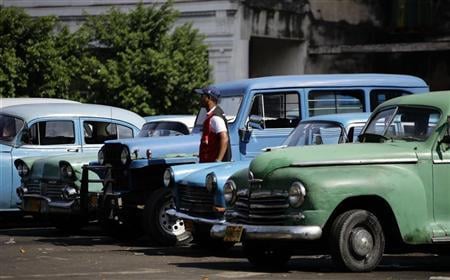 This week Raul Castro’s government took to expanding on its opening of the Cuban economy. After September’s announcement allowing Cubans to freely sell and purchase automobiles for the first time legally since the Cuban Revolution, today it was announced that Cubans could now sell and purchase private property without restrictions or licensing from the government. These notable policy announcements towards the free movement of goods and property and an opening of economic activity is considered by many as a big shift in the economic ideals of Cuba’s Revolution. On the positive end, these new investments may turn Cuba into a major investment hub in the region with major assets and private property owned by Cubans becoming a very hot commodity. Only time will tell whether or not the opening of the Cuban economy will lead to a full free market system or will be heavily controlled by the state, but change will certainly become the norm in modern day Cuba.
This week Raul Castro’s government took to expanding on its opening of the Cuban economy. After September’s announcement allowing Cubans to freely sell and purchase automobiles for the first time legally since the Cuban Revolution, today it was announced that Cubans could now sell and purchase private property without restrictions or licensing from the government. These notable policy announcements towards the free movement of goods and property and an opening of economic activity is considered by many as a big shift in the economic ideals of Cuba’s Revolution. On the positive end, these new investments may turn Cuba into a major investment hub in the region with major assets and private property owned by Cubans becoming a very hot commodity. Only time will tell whether or not the opening of the Cuban economy will lead to a full free market system or will be heavily controlled by the state, but change will certainly become the norm in modern day Cuba.
Cuba is known for having many of its drivers using refurbished and rebuilt classic American cars from the 1950s driving alongside Cold War era Ladas across the entire island. Anyone who has visited Cuba often would have enjoyed a ride in both types of vehicles. Since the end of September 2011, Cubans can now buy and sell any type of car whereas previously only cars purchased pre-1959 would be able to be sold, and a licence would be needed to purchase other newer vehicles. This licensing regime was not simply for a driver’s licence, but a license to purchase an automobile. A car in Cuba was often treated as a lifetime investment due to the high costs for such items and the difficultly in obtaining licensing to purchase an automobile. It will be interesting to see how exporting and selling cars to foreigners might take hold in Cuba as many of Cuba’s classics would be of great interest in the United States, and the embargo and still standing restrictions between trade and investment between Cuba and the US have not entirely degraded, although Americans now can visit Cuba if they desire.
The announcement today on the ability for Cubans to now sell and purchase private property is of greater interest as the previous barter system restricted the flow of investment in private property and limited the rights of full ownership of their property apart from the state. The basis of capitalism was always the ownership of property and recognition of those rights, and while Cuba’s government remains committed to the ideals of socialism and the Revolution, the opening of Cuba’s property to all of its citizens is an important milestone indeed. Regarding the ownership of property by foreign nationals, the details have yet to be set in stone, but it seems that the tradition of partial ownership by Cuban nationals in conjunction with the foreign national as seen in many Latin American countries could become the norm in Cuba. The exceptions to ownership will be limited to designated areas more open to increased foreign investment, and perhaps other locations restricted to foreign investment. Indeed when the new property rules become active on November 10th 2011, a new era in Cuba’s post-Revolutionary era will change the island nation forever.